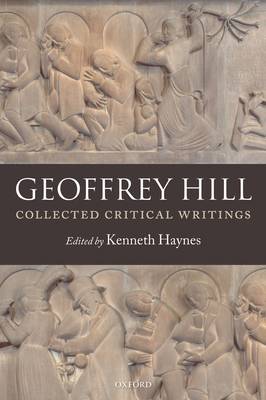
- Afhalen na 1 uur in een winkel met voorraad
- Gratis thuislevering in België vanaf € 30
- Ruim aanbod met 7 miljoen producten
- Afhalen na 1 uur in een winkel met voorraad
- Gratis thuislevering in België vanaf € 30
- Ruim aanbod met 7 miljoen producten
Zoeken
Collected Critical Writings
Geoffrey (University Professor Emeritus and Professor Emeritus o
Paperback
€ 54,95
+ 109 punten
Omschrijving
This collection of Geoffrey Hill's criticism spans the length of his career as a pre-eminent poet-critic. Three previously published books of criticism are reprinted, sometimes with substantial revisions, and two new works added.
Specificaties
Betrokkenen
- Auteur(s):
- Uitgeverij:
Inhoud
- Aantal bladzijden:
- 828
Eigenschappen
- Productcode (EAN):
- 9780199234486
- Verschijningsdatum:
- 24/09/2009
- Uitvoering:
- Paperback
- Afmetingen:
- 160 mm x 233 mm
- Gewicht:
- 1206 g

Alleen bij Standaard Boekhandel
+ 109 punten op je klantenkaart van Standaard Boekhandel
Beoordelingen
We publiceren alleen reviews die voldoen aan de voorwaarden voor reviews. Bekijk onze voorwaarden voor reviews.








